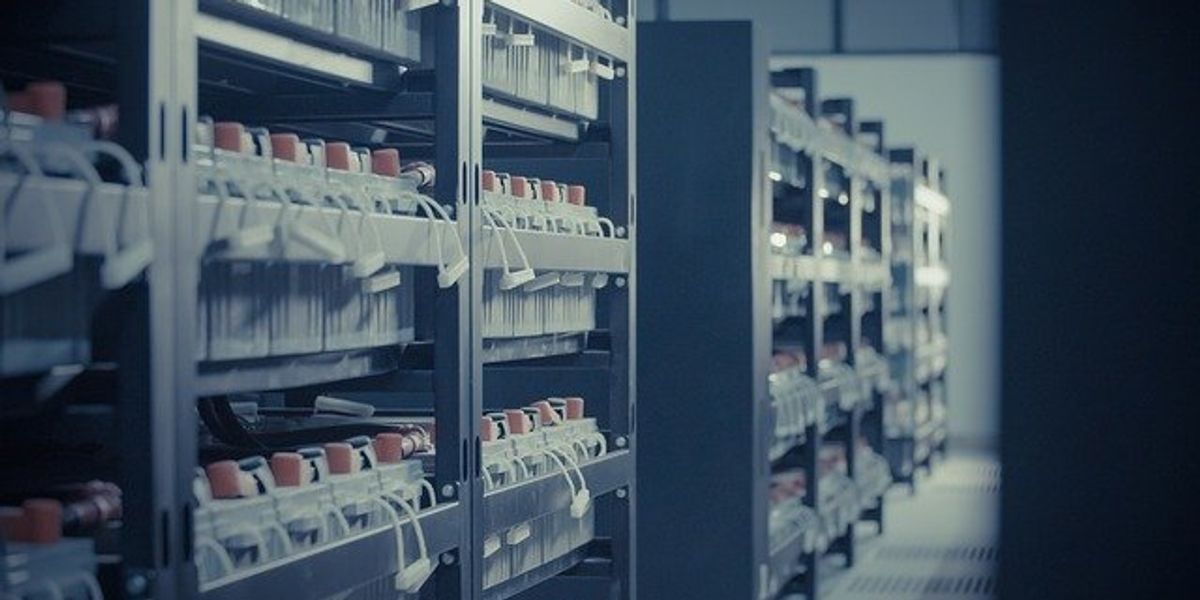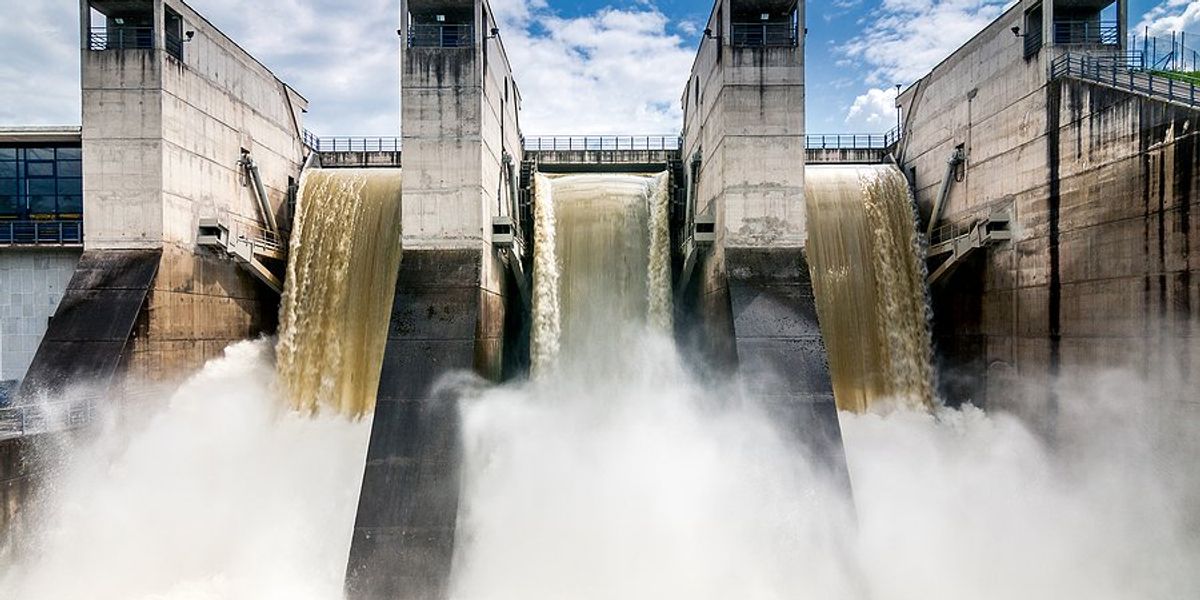decarbonization
Motionless turbines could reduce wind energy’s noise and wildlife impact
A new “motionless” wind energy system, quieter and safer for birds, has been installed on the roof of BMW’s MINI plant in Oxford, offering a scalable, renewable energy solution.
In short:
- A U.S. company, Aeromine, has developed a “motionless” wind turbine system that reduces noise and wildlife risks.
- The system works alongside rooftop solar panels to maximize energy output, particularly in low-solar conditions like evenings or winter.
- Funding for the project comes from BMW’s Startup Garage, which acts as a customer to drive innovation.
Key quote:
“Our ‘motionless’ wind energy technology is designed to work seamlessly alongside solar systems, maximizing the renewable energy output from rooftops.”
— Claus Lønborg, managing director at Aeromine
Why this matters:
With Europe already ahead of the curve in renewable adoption, if these prototypes prove effective, we could see them on rooftops across the continent, fitting in snugly where traditional turbines struggle .Read more: In the race for clean energy, the US is both a leader and a laggard — here’s how.
America is stuck in a climate contradiction
The U.S. is funneling billions into carbon capture to slow emissions, but it may not save areas like Louisiana most affected by climate change.
In short:
- Louisiana is becoming a hub for carbon capture, seen by some as a solution to climate change, though it primarily benefits the oil and gas industry.
- Critics argue that the expansion of liquid-natural-gas (LNG) plants worsens climate risks, particularly in vulnerable areas already suffering from rising seas and extreme weather.
- Despite its potential to reduce emissions, carbon capture technology is unproven at scale and may simply justify continued fossil fuel use.
Key quote:
“You always try to keep creating new value for the future.”
— Gray Stream, CEO of Gulf Coast Sequestration.
Why this matters:
Carbon capture is a major investment under Biden's climate plan, but it risks prolonging reliance on fossil fuels rather than transitioning to cleaner energy, raising questions about its real impact on climate and health outcomes. Read more: 30 environmental advocacy groups ask PA governor to veto carbon capture bill.
Reimagining energy: The rise of free solar power
A solar revolution is underway, with experts predicting that by 2030, solar power could be effectively free during daylight hours in many regions.
In short:
- Solar energy capacity saw an 80% increase in 2023, now providing nearly 6% of global electricity, with expectations to become the dominant source by the 2030s.
- The cost of solar panels has dropped dramatically, making solar the cheapest new electricity source for 95% of the world.
- The future may bring industries that adjust operations based on solar availability, with a growing focus on energy storage and transmission.
Key quote:
“The next tenfold increase will be equivalent to multiplying the world’s entire fleet of nuclear reactors by eight in less than the time it typically takes to build just a single one of them.”
— The Economist
Why this matters:
With fewer fossil fuels being burned, we could see a dramatic drop in pollution-related illnesses, cleaner air, and a significant cut in carbon emissions. The challenge now is to figure out how to harness this potential. Read more: Solving the climate crisis requires more than switching to renewables—everyone needs equal access.
Focusing only on cutting emissions risks worsening climate crisis, warns Cop16 president
Susana Muhamad, Colombia's environment minister, cautions that neglecting nature restoration in favor of solely reducing carbon emissions could lead to catastrophic global heating and societal collapse.
In short:
- Muhamad emphasized that both decarbonization and ecosystem restoration are essential to stabilize the climate.
- The Cop16 summit will aim to elevate the political importance of biodiversity alongside the climate agenda.
- Muhamad urged wealthier nations to fulfill funding promises for nature restoration.
Key quote:
"The other side of the coin is to restore nature and allow nature to take again its power over planet Earth so that we can really stabilize the climate."
— Susana Muhamad, Cop16 president
Why this matters:
Overlooking ecosystem restoration while combating climate change could trigger further environmental degradation, making global heating and its impacts even harder to manage.
Related: Climate change: For big emissions reductions, we need to think small
DNC aims to lead by example with carbon reduction efforts at Chicago convention
Climate-conscious attendees at the Democratic National Convention in Chicago are being urged to actively participate in sustainability efforts, from carbon insetting to recycling and composting.
In short:
- The DNC has launched a Travel Carbon Inset Initiative to encourage attendees to donate to local sustainable projects, aiming to mitigate the event's carbon footprint.
- Sustainability measures include compost collection, increased recycling at the United Center and using grid power instead of diesel generators.
- Critics of carbon offsetting highlight that this initiative could serve as a more effective model for reducing emissions at large events.
Key quote:
“This convention has the potential to leave a transformative legacy.”
— Stephanie Katsaros, local sustainability advisor
Why this matters:
This move aligns with the broader shift we’re seeing across the board: organizations, events, and even individuals are looking for more authentic ways to reduce their environmental impact. It’s a small step in the right direction, showing that even large-scale political events can rethink their approach to sustainability, one donation at a time. Read more: Biden administration unveils plan to wean US government off single-use plastic.
Harris could redefine climate leadership in 2024
Vice President Kamala Harris' entry into the presidential race has ignited hope among environmentalists that her administration could push climate action further than President Biden’s, particularly by holding Big Oil accountable and addressing historic injustices.
In short:
- Harris has a history of challenging the oil industry and supporting environmental justice, making her a strong contender for advancing climate policies.
- Her choice of running mate, Minnesota Gov. Tim Walz, strengthens her climate credentials, especially given his success in making Minnesota carbon-free by 2040.
- Despite skepticism from the Trump campaign, Harris’ focus on real-world benefits and her ability to communicate climate issues resonate with many voters.
Key quote:
She has a record of "making sure that Black and brown and low-income communities aren’t disproportionately impacted by corporate pollution."
— Kaniela Ing, national director of The Green New Deal Network
Why this matters:
While she’s likely to continue Biden's pragmatic approach, Kamala Harris's history as a prosecutor and a champion for justice could bring a fresh perspective to the fight against climate change. Read more: Robbie Parks on climate justice and mental health.
Sweden shows how to slash emissions while boosting the economy
Sweden has managed to cut 80% of its emissions since 1990 while doubling its economy, proving that economic growth and climate protection can go hand in hand.
In short:
- Sweden's success comes from early investments in renewable energy, utilizing its natural resources like forests and hydropower.
- The country transitioned away from fossil fuels for heating and electricity, with biofuels now powering 97% of heating.
- Strong government policies, including a high carbon tax, incentivized businesses and citizens to adopt greener practices.
Key quote:
"The biggest lesson is that you need close cooperation between government, private sector, and the local government as well to really develop these system solutions together and take risks, make these big long-term investments."
— Asa Persson, advisor to the Swedish government on climate policy.
Why this matters:
By investing in green tech, enforcing strict environmental regulations and pushing for a circular economy where waste becomes a resource, Sweden is showing the world that you don’t have to choose between a healthy planet and a thriving economy. Read more: Steps to re-invigorate the economy must free us from polluting fossil fuels.



















